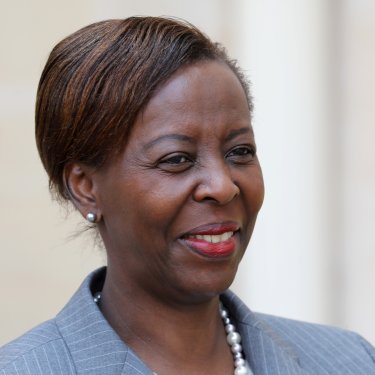RSF worried by Rwandan candidate to head OIF

Reporters Without Borders (RSF) is concerned about Rwandan foreign minister Louise Mushikiwabo’s candidacy to be the next secretary-general of the International Organization of the Francophonie (OIF). Although the Rwandan government is one of the worst press freedom violators, she has significant support and has every chance of being elected.
Her government’s spokesperson as well as its foreign minister, and so far the only person running against the OIF’s current secretary-general, the Canadian Michaëlle Jean, who is seeking a second term, Mushikiwabo has already received the public backing of French President Emmanuel Macron and the African Union.
The next secretary-general will be chosen at a summit in the Armenian capital of Yerevan on 11-12 October.
Rwanda is ranked 156th out of 180 countries in RSF's 2018 World Press Freedom Index. Only five of the OIF’s 58 member countries have worse rankings.
The regime that President Paul Kagamé has ruled with an iron hand since 2000 and Mushikiwabo has represented for nearly ten years has used censorship, threats, arrests, physical violence and murder to silence media outlets and journalists. Kagamé holds a prominent position in RSF’s gallery of press freedom predators.
“How is the OIF going to be able to defend media pluralism and press freedom in accordance with its human rights goals if it is run by one of the top leaders of a country that has been trampling on the right to inform and persecuting journalist for the past 18 years?” RSF secretary-general Christophe Deloire asked. “It is the OIF’s ability to defend independent journalists and media as vital development actors in the French-speaking world that is at stake.”
Eight journalists have been killed or have disappeared in Rwanda since 1996 while 35 have had to flee the country. The number of press freedom violations tallied by RSF has fallen in recent years but censorship is still ubiquitous and journalists still routinely censor themselves to avoid being targeted by the regime.
The BBC’s very popular Kinyarwanda-language radio programmes have been banned since 2015, when the BBC broadcast a TV documentary that blamed Kagamé’s Rwandan Patriotic Front for some massacres during the 1994 genocide of Tutsis.
At their summit in Antananarivo in November 2016, the OIF’s heads of state and government reiterated their commitment to “guarantee effective protection of journalists and freedom of the press.”
Every year OIF awards the "media innovation francophone Prize" along with RSF and RFI.



